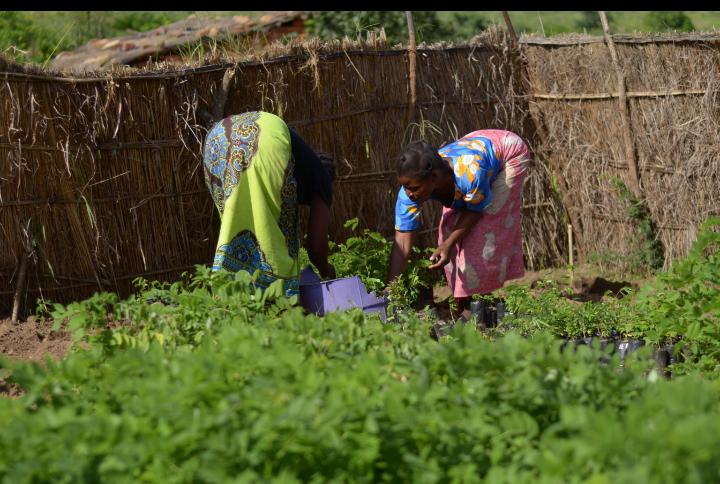Written by Muthi Nhlema, Team Leader
A few months ago, I wrote a blog “Having Clean Water Is Not Enough” where I shared my deeply held belief that water has to add tangible value, beyond just being clean and safe, to the lives of the rural poor. This is becoming a mantra within BASEflow and is, consistently, challenging us to think beyond conventional WASH programming design.
We are not alone in our line of thinking.
The Rural Water Supply Network (RWSN) chair Kelly Ann Naylor from UNICEF agrees. In the June Issue of RWSN Update, Naylor challenged the water sector globally to transform people’s lives by harnessing water infrastructures to “cater for a wider spectrum of rural needs – domestic supply, household gardens, rural businesses and rural transformation as well as drinking water”. She further added that this will require fierce collaboration where rural water practitioners join hands, work across disciplines and ‘development themes’ to address gaps in achieving the Sustainable Development Goals. Our work on the “Maximizing Artesian Systems for Sustainable Agriculture” project in Jordani Village, supported by the Scottish’s Government’s Climate Justice Innovation Fund and implemented in partnership with University of Strathclyde, is a petri-dish for testing this bold idea.
After successfully capping and controlling the artesian well in February of this year (after 12 years and 150 million liters of non-stop water flow), the next phase of project involved working with the Jordani community to explore small projects that could maximize the conserved resource. Through participatory planning and budgeting facilitated in close collaboration with the local government, the community identified three ideas they wanted to pursue including fish farming, irrigation and piped water supply. However, it was evident from the size of the budgets, the Scottish investment could not adequately finance all small projects, particularly the irrigation scheme; this would need additional support apropos co-financing.

After submitting a proposal to Irish Aid, we are excited to announce that BASEflow has secured co-financing from Irish Aid’s Small Grants Fund to exclusively support the establishment of a community-run irrigation scheme. Irish Aid’s Small Grants Fund is part of Irish Embassy’s in-country portfolio of responsive and agile interventions that aim to build the resilience of poor households to economic, social, and environmental shocks in line with Malawi’s growth and development strategy; a goal that exactly aligns with that of the Scottish Government’s Climate Justice Innovation Fund. Irish Aid’s co-financing, totaling € 7,427.33, will contribute toward the construction of the irrigation scheme and community training in horticulture, irrigation and crop production methods. This will ensure that the artesian water, which has been building pressure since it was capped, will be maximized for productive purposes, beyond drinking, thus further giving added incentive for the community to maintain and sustain their water source; a desired outcome that has eluded the water sector in Malawi for years.
This, in our view, is not just an investment in another exciting project, but it is an affirmation of BASEflow’s new mantra of transforming lives by maximizing water to cater for a wider spectrum of rural needs. For this, we are grateful to Irish Aid for their investment, trust and we look forward to (re)discovering the potential of groundwater, together (and probably learn a little Irish along the way! :-).



